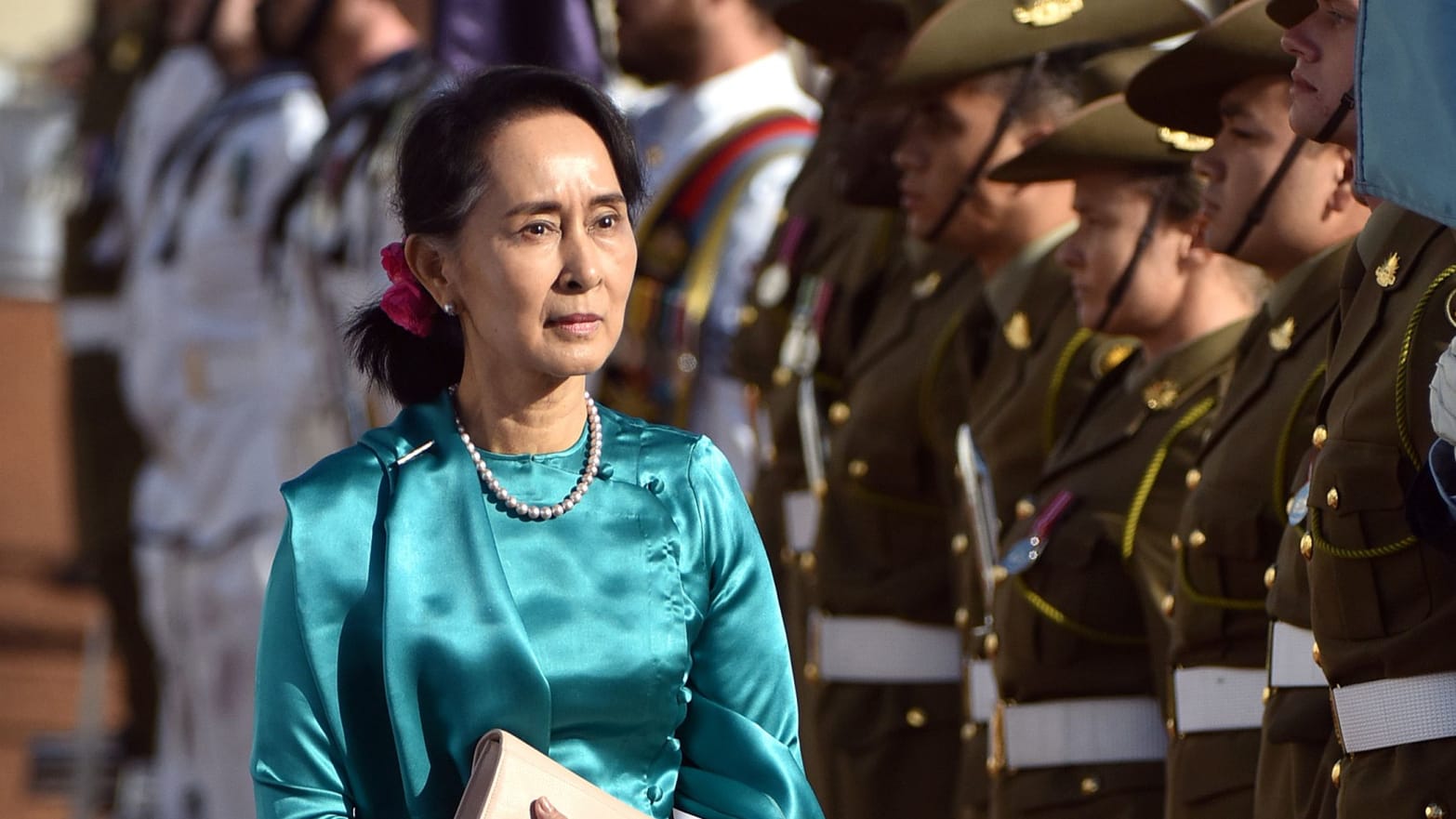The rise of democracy in Myanmar, long accustomed to military rule, seemed too good to be true, and the arrest of the once-revered democracy crusader Aung San Suu Kyi and her allies confirms the dream was a fantasy.
Suu Kyi, who won a Nobel Peace Prize nearly 30 years ago for battling for democratic rights, is now held again in a military coup. Freed in 2010 from 16 years of confinement at her estate in the major city of Yangon, she threw away her global acclaim by siding with the military in the ruthless suppression of minority Muslims.
The demise of Aung San Suu Kyi marks a stark contrast to the optimism which lasted several years. When I was last there, Suu Kyi was being held up as a face of democracy and the revival of the economy.
In those heady days, “People were coming back from abroad,” said Tom Coyrner, an Asian business analyst, who’s visited the country several times. “She used to sit on a platform at her estate and talk to admirers.”
Driving past her estate by a lake in the major city of Yangon, formerly Rangoon, I was told she had gone to Naypyidaw, the modern capital to the north. “She’s always there,” said a guard at the gate. “She’s very busy, she has a lot to do.”
At the time, it seemed she was busy forging democracy in a country that had been dominated by the military for generations.
The daughter of Aung San, a revolutionary who wrested independence from Britain before he was assassinated in 1947, is now 75. She remains hugely popular at home but, once again, she is powerless.
She was always far too well-liked for the generals to accept for long as a de facto leader. “They followed the Trump playbook,” Keith Rabin, a veteran of many years working on projects in Myanmar, told the Daily Beast. “They disputed the results. They were looking at voter lists. There was lots of posturing on both sides.”
Unlike Donald Trump, however, Myanmar’s generals already held decisive power. “These guys decided, Who needs this,” said Rabin, president of KWR International, a consulting firm. “The whole situation is tragic.”
The fall of Suu Kyi comes after her National League for Democracy won 83 percent of the votes in elections in November for members of the parliament, which was about to meet to confirm the results. The military, whose Union Solidarity and Development Party won only a handful of seats, charged fraud and called for new elections in a year.
As soldiers set up barricades in Naypyidaw and TV programming and the internet were partially blocked, the specter of military dictatorship hung over a country that had once won praise as an exemplar for incipient democratic reform.
The sudden reversal came as a shock to the new U.S. leadership. President Joe Biden had been vice president when Barack Obama in 2012 became the first U.S. president to visit Myanmar, which had been under often anti-American military control since 1962.
The White House, confronted with the first foreign policy problem of the Biden presidency, promptly said the U.S. “opposes any attempt to alter the outcome of recent elections or impede Myanmar’s democratic transition, and will take action against those responsible if these steps are not reversed.”
Secretary of State Antony Blinken called on the country’s military “to release all government officials and civil society leaders and respect the will of the people.” He pointedly referred to Myanmar as Burma, the name of the country before a commission of the ruling military renamed it in 1989 when the country’s former capital was changed from Rangoon to Yangon. But there was little sign of the U.S. doing anything beyond vague hints of sanctions to keep the military from exercising their will as they have persisted in doing even after Suu Kyi had been rehabilitated.
Ensconced as “state councilor” after elections in 2015, Suu Kyi had sought to ingratiate herself with the generals who automatically held one-fourth of the seats in the parliament under a constitution imposed in 2008. Generals also serve in the posts of defense and home minister, with power over the national police.
Suu Kyi sided with them as soldiers and police forces rampaged through the villages of the Muslim minority Rohingya in 2016 and 2017, killing thousands and forcing nearly a million to flee across the border to neighboring Bangladesh, a Muslim-majority country. She even defended the country’s record against charges of genocide in the International Court of Justice in the Hague in 2019.
Finally, after making clear his discontent with the results of the latest elections, General Min Aung Hlaing, leader of the anti-Muslim campaign, was proclaimed as state leader and commander-in-chief. Another general, Myint Swe, is acting president in place of U Win Myint, who was arrested along with Suu Kyi and dozens of others.
Suu Kyi herself could not hold the title of president under the 2008 constitution because the two sons she had with her English husband, Michael Aris, held foreign passports. But she was often viewed as the country’s real leader. Aris, a British academic whom she met while both were at Oxford University, died in England in 1999, 11 years after she had returned to Rangoon to campaign for democracy.
Her campaign was so successful that Obama, on his second visit to Myanmar in 2014—this time for a summit of leaders of East Asian countries—saw a nation on the road to reform. That was despite innumerable difficulties dealing with a long-simmering revolt among not only among Muslims in the northwest but also rebel Shan and Karen minorities near the northern borders with Thailand.
Obama was so enthused after the parliamentary elections of 2015 as to sign an executive order “terminating the national emergency with respect to Burma,” revoking sanctions and ending other measures against financial relationships.
The latest coup represents a throwback to old ways.
“The last quarter-century in Burma is usually narrated as a fight for democracy, with a thuggish junta on one side and, on the other, Aung San Suu Kyi and her National League for Democracy,” Myint-U Thant, a Burmese academic in the U.S. wrote.
Thant saw the underlying issue in economic terms: “Less well known is the story of the predatory political economy that developed over this period.”
Suu Kyi “accepted the new constitution in the hope that it would be a step towards proper democracy,” he wrote. “The reformist push soon lost momentum as venal interests reasserted themselves and disputes within the elite came into the open.”

